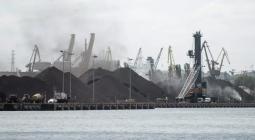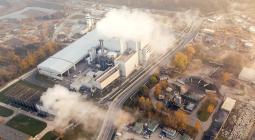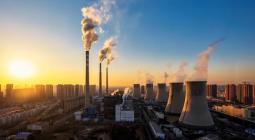‘A critical moment’: UN warns world will miss climate targets unless fossil fuels phased out

Governments are failing to cut greenhouse gas emissions fast enough to meet the goals of the Paris agreement and to stave off climate disaster, a major report by the UN has found.
Meeting the goals will require “phasing out all unabated fossil fuels”, the report says, in an acknowledgment that some oil-producing countries may find hard to take.
The need to phase out fossil fuels has not been explicitly adopted by the UN before, under successive rounds of climate talks, and language over “phasing out” or “phasing down” fossil fuels has caused controversy at the annual UN climate talks.
There is a “rapidly narrowing window” for governments to move faster, according to the report, as global greenhouse gas emissions must peak by 2025 at the latest, and be rapidly reduced from there, to limit temperature rises to 1.5C above pre-industrial levels.
Emissions are still rising, however, and there is a gap of 20 to 23 gigatonnes of CO2 between the cuts needed by 2030 to limit global temperatures to 1.5C and the world’s current emissions trajectory.
The report, which was expected next week but was published hurriedly in draft by the UN on Friday, will form the basis of the first “global stocktake” under the 2015 Paris agreement. That process is meant to track countries’ efforts to meet the goals of the treaty.
However, the 47-page UN report does not set out in detail which countries are falling behind, nor does it contain specific recommendations directed at particular countries or regions.
Instead, the global situation is described in broad and general terms that were largely predictable, as it has been clear for some time that the world is far off track to stay within the tougher of the Paris goals, of limiting temperature rises to 1.5C above pre-industrial levels.
Ani Dasgupta, the head of the World Resources Institute thinktank, noted that the bland tone of the report disguised a catastrophic failure. He said: “The UN’s polite prose glosses over what is a truly damning report card for global climate efforts.
“Carbon emissions? Still climbing. Rich countries’ finance commitments? Delinquent. Adaptation support? Lagging woefully behind. This report is a wake-up call to the injustice of the climate crisis, and a pivotal opportunity to correct course.”
The global stocktake will form the basis of negotiations at the next UN climate summit, Cop28, to be held in Dubai in November.
While most of the recommendations in the report are unremarkable – exhortations to change transport, buildings and high-carbon industries, to reduce the carbon emissions associated with each – the finding on fossil fuels stands out. Buried in a short paragraph midway through the summary, the recommendation on phasing out fossil fuels is clear in its meaning, and likely to be explosive in its impact on the negotiations.
“Achieving net zero CO2 and greenhouse gas emissions requires systems transformations across all sectors and contexts, including scaling up renewable energy while phasing out all unabated fossil fuels, ending deforestation, reducing non-CO2 emissions and implementing both supply and demand side measures,” reads key finding 6 of the report.
The question of phasing out fossil fuels is now at the heart of the UN global climate talks. For years, oil-producing nations have prevented the UN from adopting language that would clearly require a phasing out of fossil fuels, even though it is undisputed that burning fossil fuels is the prime cause of the climate crisis.
Last year, an attempt to get language on phasing out fossil fuels included in the outcome of Cop27, in Egypt, failed. Fresh attempts have been made this year, but the UAE has so far avoided including language on phasing out fossil fuel emissions in any communications on Cop28. Asked by the Guardian, the Cop28 president-designate ASultan Al Jaber would refer only to “phasing down” fossil fuels.
As the global stocktake is the key document for Cop28 and forms the basis for negotiations, for this recommendation to be included is highly significant.
A spokesperson for the European Commission told the Guardian the EU was strongly in favour. “We welcome and agree with such language. Already on several occasions the commission and EU ministers have called for a move towards energy systems free of unabated fossil fuels. We see the push for global targets on renewables and energy efficiency measures as part of the path to achieve that.”
Gareth Redmond-King, head of international programme at the Energy and Climate Intelligence Unit thinktank, said: “The most important part of the report is key finding 6 – commitment that delivering on Paris means scaling up renewables, phasing out fossil fuels, ending deforestation, tackling methane – transformational changes needed to get to net zero and get on track for 1.5C. Because that’s setting the agenda for Cop. The discussions to come later this month, again next month, and then in Dubai at Cop itself – the response to this stocktake. That’s what needs to be the gamechanger to shift up a few gears.”
The report found plenty of measures governments could take to reduce emissions that would be low cost and easy to implement, including investments in renewable energy, and conserving and regrowing forests. Some developing countries would require financial help to seize these opportunities, however.
“There are now sufficient cost-effective opportunities to address the 2030 emissions gap, yet significant challenges, including access to and availability of support, remain in harnessing these opportunities at the required pace and scale,” the report says.
Photograph: The need to phase out fossil fuels has not been explicitly adopted by the UN before. Photograph: Rex Wholster/Alamy





